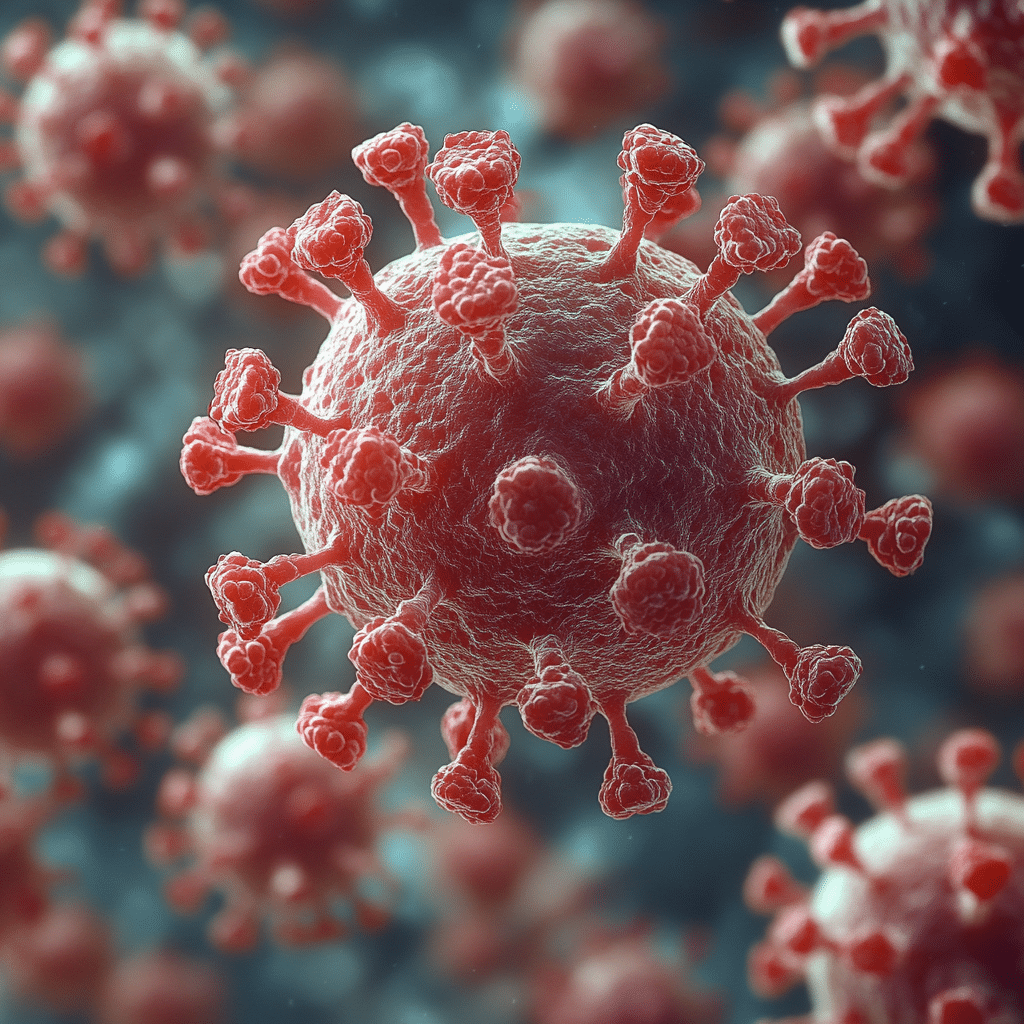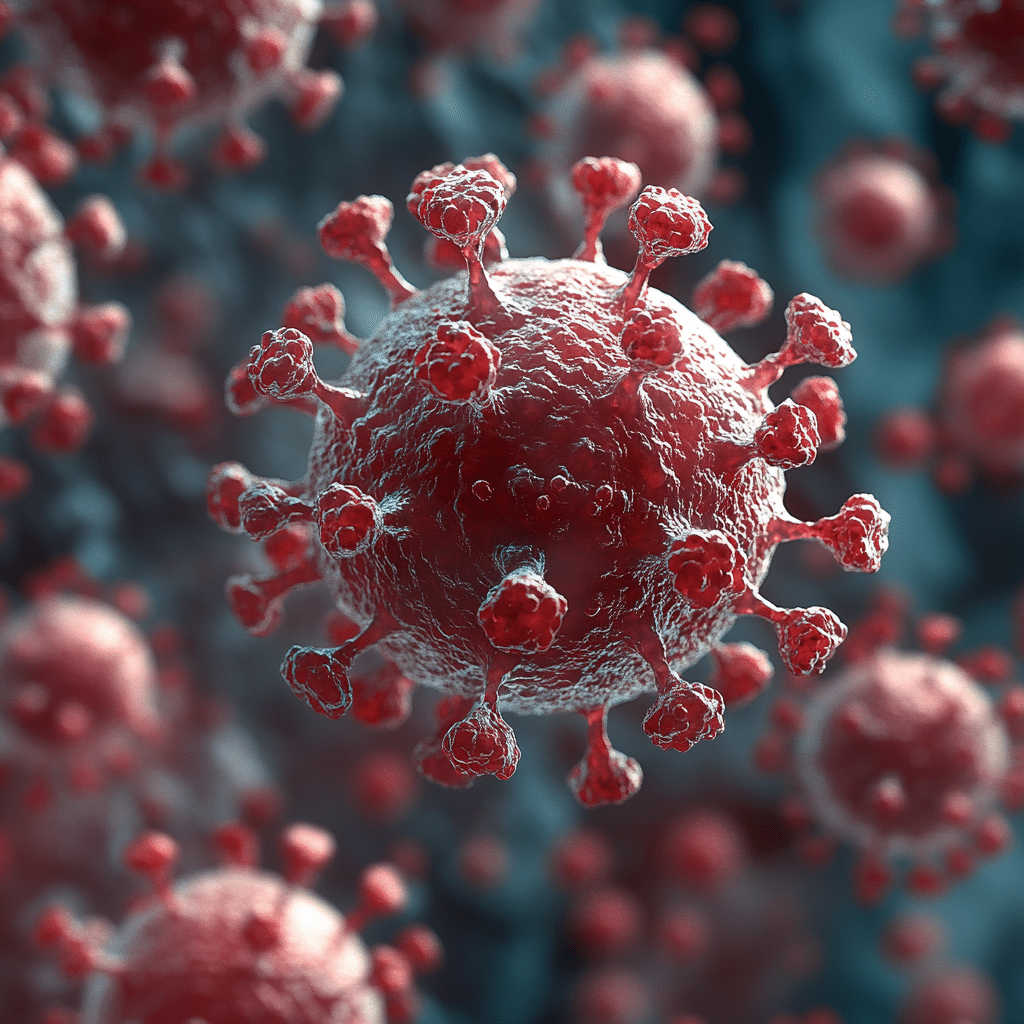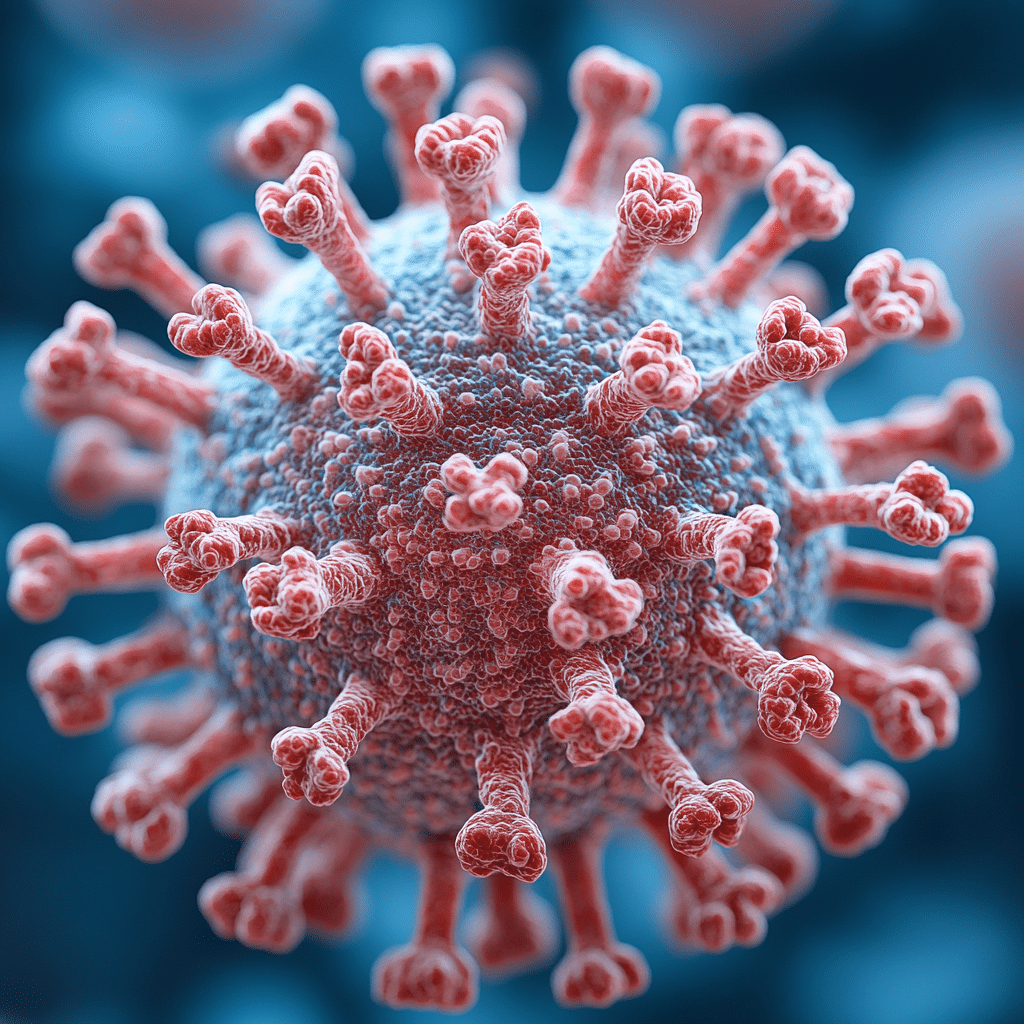Recent HIV cure news is making waves across the medical community, and for good reason. Exciting advancements in research are sparking hope among patients and healthcare professionals alike. Notably, studies are now leveraging advanced gene editing tools and long-acting antiretroviral therapies like never before. For instance, the CRISPR-Cas9 gene editing method has demonstrated remarkable success in targeting and removing HIV DNA from infected cells in lab settings. Pairing this with broadly neutralizing antibodies (bNAbs) is setting the stage for revolutionary changes in how we treat those living with HIV.
As we dive deeper into these developments, it’s important to note that the goal is not merely to manage the virus but also to cure it altogether. The FDA has recently recognized a gene-editing therapy named EBT-101, which aims to eradicate HIV, receiving fast-track designation in July 2023. This therapy is currently undergoing clinical trials, expected to conclude by March 2025. With each passing day bringing fresh updates, there’s a sense of excitement and urgency in the air; some clinical trials are racing toward what researchers hope will be a sterilizing cure for HIV within the next 5 to 10 years.
Furthermore, the anticipation builds with innovations like lenacapavir—a game-changing drug that might just offer a viable method for HIV prevention. Set to feature prominently at the AIDS 2024 Conference in Munich, this drug promises a twice-yearly injection option that people might find more convenient compared to traditional methods. The implications of these advancements bring us closer to reimagining HIV treatment and prevention, making it a thrilling time in the world of HIV cure news.
Top 5 Examples of Groundbreaking HIV Cures in 2024
1. The London Patient
Timothy Ray Brown, better known as the ‘Berlin Patient,’ was the first individual cured of HIV back in 2008. Following his unfortunate passing in 2020, the focus shifted to Adam Castillejo, the ‘London Patient.’ Through a stem cell transplant from a donor with a rare genetic mutation, he was declared free of HIV, reigniting interest in bone marrow transplants as a possible cure avenue.
2. bNAbs Trials by IAVI
The work being done by the International AIDS Vaccine Initiative (IAVI) has the potential to change everything. Their clinical trials involving a combination of bNAbs have reported encouraging results, as the combination effectively suppresses the virus in select patients. As researchers move forward, they’re confident that antibody-mediated strategies could pave the way for more effective and potentially curative treatments.
3. University of California’s Gene Editing Study
Out at UC Berkeley, researchers have taken noteworthy strides by developing a gene editing approach aimed at excising the HIV genome from host cells. Although still in preliminary phases, their findings suggest we might one day create an immune system that’s resistant to HIV. This innovation could be a groundbreaker in our quest for a working cure.
4. Moderna’s mRNA Vaccine Efforts
After hitting it big with their COVID-19 vaccine, Moderna is now putting its mRNA technology to the test in developing an HIV vaccine. Early-phase trials show promise, with strong immune responses observed in participants. If successful, this approach could reshape both HIV prevention efforts and treatment methodologies.
5. A HIV-1 Cure: The Case of the Mississippi Baby
Perhaps one of the most startling cases is that of a baby born with HIV in Mississippi, who received aggressive antiretroviral therapy shortly after birth and achieved a functional cure. This intriguing case has reopened discussions about the timing of treatment initiation and how early interventions could help in curing not just keeping the virus at bay.

The Role of Antiretrovirals in Evolving HIV Cure News
Even as the hunt for an all-out cure for HIV continues, antiretroviral therapy (ART) remains crucial. Modern ART allows individuals living with HIV to lead healthy and fulfilling lives. The recent introduction of long-acting injectable ART—approved in 2021—has made treatment more manageable. These injectables, administered monthly, prove to be just as effective as traditional daily pills, offering a more convenient path for many patients.
Furthermore, there’s growing optimism surrounding injectable pre-exposure prophylaxis (PrEP) options, which can be taken every two months. This shift underscores a broader trend toward more accessible and less intrusive treatment approaches. With ongoing advancements in cure research, both the management and potential eradication of HIV appear to be on the horizon, paving the way for a hopeful future.
| Date | Development | Type | Key Details | Status/Impact |
| 2021 | Injectable Cabotegravir & Rilpivirine | Treatment | Monthly injection for HIV treatment. | Approved & available |
| 2021 | Long-acting injectable PrEP | Prevention | Administered every 2 months, first long-acting injectable for PrEP. | Approved & available |
| July 2023 | EBT-101 Gene-Editing Therapy | Potential Cure | Gene-editing therapy received FDA fast-track designation; clinical trial expected to finish by March 2025. | Under clinical testing |
| Jul 24, 2024 | Lenacapavir Injection | Prevention | Twice-yearly injection; generating interest and some controversy at AIDS 2024 Conference. | In discussion for regulatory approval |
| Sep 12, 2024 | Global Regulatory Filings for Lenacapavir | Future Prevention | Gilead plans to initiate global filing for lenacapavir as PrEP by end of 2024, targeting a launch in 2025. | Approvals pending |
| 2024 (Projected in 5-10 years) | Expected Sterilizing Cure | Potential Cure | Emerging trials showing promising results; expectation for viable sterilizing cure for HIV. | Long-term hope |
Societal Implications of Potential HIV Cures
As the field of HIV research evolves, the societal implications become increasingly evident. The prospect of new treatments—or outright cures—raises essential questions about healthcare accessibility, insurance frameworks, and overall public perception of HIV. Continuous public campaigns to educate the masses and destigmatize HIV are vital as we venture into an era where such cures may be broadly available.
Moreover, engaging with communities affected by HIV will play a crucial role in shaping the future of treatment accessibility. The success of new therapies hinges not just on the science behind them, but also on how well the message of their potential reaches those who need it most. As new avenues open up, striking a balance between scientific advancement and public engagement will be key.

Looking Ahead: Future Trends in HIV Cure News
The journey to finding a cure for HIV is full of hope, but not without its challenges. Emerging technologies like artificial intelligence are increasingly being leveraged in drug discovery, allowing researchers to decode HIV’s mysteries more efficiently. The collaboration among global researchers—and the fostering of international clinical trials—further enriches our understanding of the virus.
Anticipating the future, it seems that the most promising strategies will involve a blend of vaccination, gene editing, and novel therapeutic options. The landscape of HIV research is rapidly transforming. With a concerted global push towards innovation, the dream of one day living in a world free of the burden of HIV is inching closer to reality.
In this exhilarating race for an HIV cure, every breakthrough fuels the determination to combat this ongoing epidemic. As research accelerates and partnerships strengthen, the vision of a brighter tomorrow becomes tangible. With vital funding and a commitment to improving patient access to groundbreaking treatments, the dream of an HIV cure might soon transition from an aspiration to an attainable reality.
HIV Cure News: Fun Trivia and Interesting Facts
The Journey of Discovery
In recent years, HIV cure news has captivated scientists and the public alike, as researchers continue to unveil promising treatments. Did you know that the quest for an HIV cure has been going on for over four decades? It all started back in the 1980s when HIV was first identified as the cause of AIDS. Since that time, advancements have changed the landscape dramatically, similar to how Gnosall has evolved with community support and initiatives. While it’s still a work in progress, the relentless efforts in research remind us of the upbeat spirit behind initiatives like the ongoing Hinckley news Updates , Which keep Communities informed about local Developments .
Hope for the Future
As new breakthroughs emerge, experts highlight fascinating stories of individuals who have turned the tide on HIV. Take the case of Timothy Ray Brown, famously known as “the Berlin Patient.” He was the first person deemed cured of HIV after receiving a stem cell transplant. What’s more interesting is that stem cell treatments are also being explored for various ailments. You might be surprised to know that just like Funk 49 Entertains Listeners , groundbreaking research Continues To capture attention , making hope resonate in countless Lives Battling Hiv . This Is especially significant as new Therapies are developed , Aiming To make Hiv treatment more accessible And manageable .
Cultural Connections
HIV cure news isn’t just about medicine; it’s also about community and culture. In some regions, the challenges of stigma still linger, much like how people share delicious purslane recipes to celebrate local cuisine. Building awareness and understanding can play a vital role in changing perceptions, bringing people together—similar to the way projects in Hirwaun strive to elevate community moral alongside local health initiatives. Each step forward in the fight against HIV is like climbing the slopes of the Himalayan Resting place , filled With Challenges but also promising Vistas Of hope And healing .
In conclusion, as HIV cure news continues to evolve, it fosters a sense of anticipation and excitement. With each piece of news, we’re reminded of the incredible human spirit striving for a healthier future for all.

How close are we to curing HIV?
Encouraging reports suggest we might see a sterilizing cure for HIV within the next 5 to 10 years, with some ongoing trials showing promising results.
What is the new HIV treatment for 2024?
A new treatment for HIV making waves in 2024 involves a twice-yearly injection of lenacapavir, which is generating a lot of interest and some debate at the AIDS 2024 Conference in Munich.
What is the new hope of HIV cure?
There’s growing excitement around a gene-editing therapy called EBT-101, which received fast-track status from the FDA in July 2023 and aims to cure HIV, with trials set to wrap up in March 2025.
Will HIV cure in 2030?
While experts are hopeful for significant breakthroughs, whether HIV will be fully curable by 2030 remains uncertain and depends on the success of ongoing research and trials.
Is there a confirmed cure for HIV?
As of now, there’s no confirmed cure for HIV, but ongoing research is paving the way for potential breakthroughs in the future.
When will HIV end?
Predicting when HIV will end is tough, but with advancements in treatment and prevention, there’s hope for significant progress in the coming years.
Will there be a cure for HIV in my lifetime?
For many, there’s a good chance a cure for HIV could be available within their lifetime, especially with the promising developments in research and treatment options.
Can HIV be cured within 72 hours of infection?
Currently, there’s no known cure for HIV within 72 hours of infection, but early treatment can help manage the virus effectively.
Can HIV be cured at the early stage?
While early-stage treatment can significantly elevate the chances of managing HIV, it doesn’t equate to a cure, but timely intervention is critical for health.
Which country is HIV free?
Countries like Botswana have made significant strides in managing HIV, but no country is entirely HIV-free at this moment.
What is the longest HIV survivor without treatment?
The longest reported HIV survivor without treatment is believed to have lived for over 30 years, demonstrating the complexities of the virus and human resilience.
Should I worry if I have HIV?
If you have HIV, it’s understandable to be concerned, but with proper treatment, many people live long, healthy lives without significant health issues.
How long until we have a cure for HIV?
With ongoing research and potential therapies in the wings, there’s a hopeful outlook for achieving a cure for HIV in the not-so-distant future.
Do HIV positive people live longer?
Thanks to advancements in treatment, many people living with HIV can now live longer and healthier lives than ever before.
Can HIV be gone forever?
Currently, HIV cannot be completely eradicated from the body, but with effective treatment, the virus can be controlled to the point where it’s undetectable.
Why can’t we cure HIV?
HIV remains a complex virus to cure due to its ability to hide within the body and evade the immune system, making research difficult but not hopeless.
What is the longest HIV survivor without treatment?
The longest known survivor without treatment has lived over 30 years, highlighting the variable nature of HIV’s impact on individuals.
Can you stay undetectable forever?
With consistent treatment and care, an undetectable status can be maintained for many living with HIV, making it possible to lead a normal life.
Can you have HIV for 20 years and not know?
It’s possible to live with HIV for years without knowing, as some people can be asymptomatic and not get tested regularly, which is why regular screenings are important.



